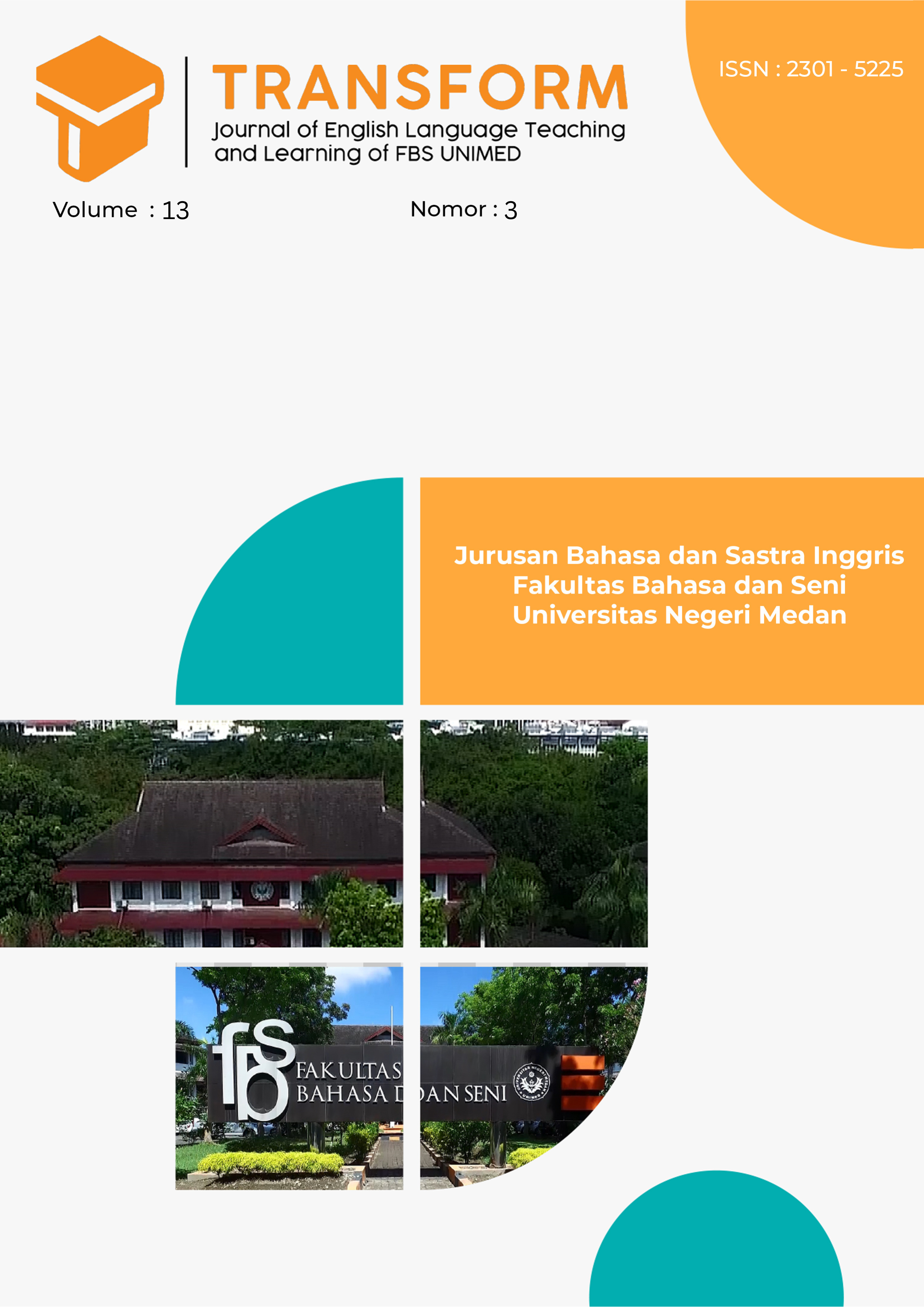Flouting of Grice’s Maxim in Chris Rock ‘Selective Outrage’ Stand-Up Comedy Show on Netflix
DOI:
https://doi.org/10.24114/tj.v13i3.67201Keywords:
Flouting Maxims, Flouting Strategies, Stand-up Comedy, PragmaticsAbstract
This research aims to analyze the types and how flouting maxims are used in creating humor in Chris Rock's 'Selective Outrage' Stand-up Comedy Show on Netflix. It focuses on Chris Rock's stand-up comedy entitled Selective Outrage, which addresses social phenomena. It was nominated for a Golden Globe Award for Best Performance in Stand-Up Comedy on Television. The data was utterances displayed for 1 hour and 10 minutes in a script spoken or English subtitle in his comedy performance. The data was collected through a documentary method, using videos of Chris Rock's performance on Netflix. The study uses a descriptive-qualitative design to analyze the linguistic components of the material pragmatics in Chris Rock's comedy performances. The findings demonstrate that the comedian applies every type of maxim, including quality, quantity, relation, and manner to create humor, with maxims flout of quality being the most frequently used. The study also reveals that Chris Rock uses various strategies to flout his maxims, and irrelevant strategies are used more regularly than metaphor and understatement.References
Al-Aadili, M, N., & Hammood, M, S. (2022). Prosodic features of humorous utterances in American stand-up comedies. Res Militaris.
Al-Sawaeer, S., Rabab’ah, G., & Power, A. J. (2022). Humor in the Arabic comedy show, N2O. Cogent Arts & Humanities, 9(1). DOI: 10.1080/23311983.2022.2082019
Berger, A. (1993). An anatomy of humor (1st ed.). Transaction Publishers.
Birner, B. J. (2012). Introduction to pragmatics. John Wiley & Sons.
Chiaro, D. (1992). The Language of Jokes: Analyzing Verbal Play. London and New York: Routledge.
Cutting, J. (2005). Pragmatics and discourse: A Resource Book for Students. Routledge.
Dynel, M. (2013). Irony from a neo-gricean perspective: On untruthfulness and evaluative implicature. Intercultural Pragmatics, 10(3). DOI: 10.1515/ip-2013-0018
Grice, H. P. (1975). Logic and conversation (1st ed.). Seminar Press.
Jhonston, D. D. (2009). Research Methods for Everyday Life. Jossey Bass.
Jorfi, L., & Dowlatabadi, H. (2015). Violating and Flouting of the Four Gricean Cooperative Maxims in Friends the American TV Series. International Review of Social Science, 3(8), 364–371.
Merzah, Z. N. (2021). A pragmatic study of humor in Iraqi facebook comments. International Journal of Linguistics, Literature and Translation, 4(10), 53–66. DOI: 10.32996/ijllt.2021.4.10.8
Nancy, C., Nganga, S., & Kandagor, M. (2023). Forms of humour created through maxim flouting in Churchill show comedy performances. Scholars Journal of Arts, Humanities and Social Sciences, 11(03), 105–119. DOI: 10.36347/sjahss.2023.v11i05.003
Puspasari, M.A, & Ariyanti, L. (2019). Flouting maxims in creating humor: A comparison study between Indonesian and American Stand-up comedy. Prosodi, 13(2).
Rafika, R., Yuliasri, I., Warsono, W. (2020). Flouting of Grice’s maxims in the humorous utterances in American situation comedy 2 Broke Girls. Semantic Scholar, 10(4). DOI: 10.15294/eej.v10i4.39465
Raskin, V. (1985). Semantic Mechanisms of Humour. D. Dordrecht, Holland: Reidel Publishing Company.
Smith, J., & Lee, R. (2023). Viewing habits of comedy enthusiasts on streaming platforms. Journal of Entertainment Studies, 15(2), 123-135.
Yamazaki, T. (2010). Conversational implicature in Stand-up comedy (1st ed.). Hosei University.
Downloads
Published
How to Cite
Issue
Section
License
Copyright (c) 2025 Aura Febri Harvi

This work is licensed under a Creative Commons Attribution-ShareAlike 4.0 International License.
Authors who publish with this journal agree with the following terms:
- Authors retain copyright and grant the journal right of first publication with the work simultaneously licensed under a Creative Commons Attribution License that allows others to share the work with an acknowledgment of the work's authorship and initial publication in this journal.
- Authors are able to enter into separate, additional contractual arrangements for the non-exclusive distribution of the journal's published version of the work (e.g., post it to an institutional repository or publish it in a book), with an acknowledgment of its initial publication in this journal.
- Authors are permitted and encouraged to post their work online (e.g., in institutional repositories or on their website) prior to and during the submission process, as it can lead to productive exchanges, as well as earlier and greater citation of published work (See The Effect of Open Access).
- This work is licensed under a Creative Commons Attribution-ShareAlike 4.0 International License.








